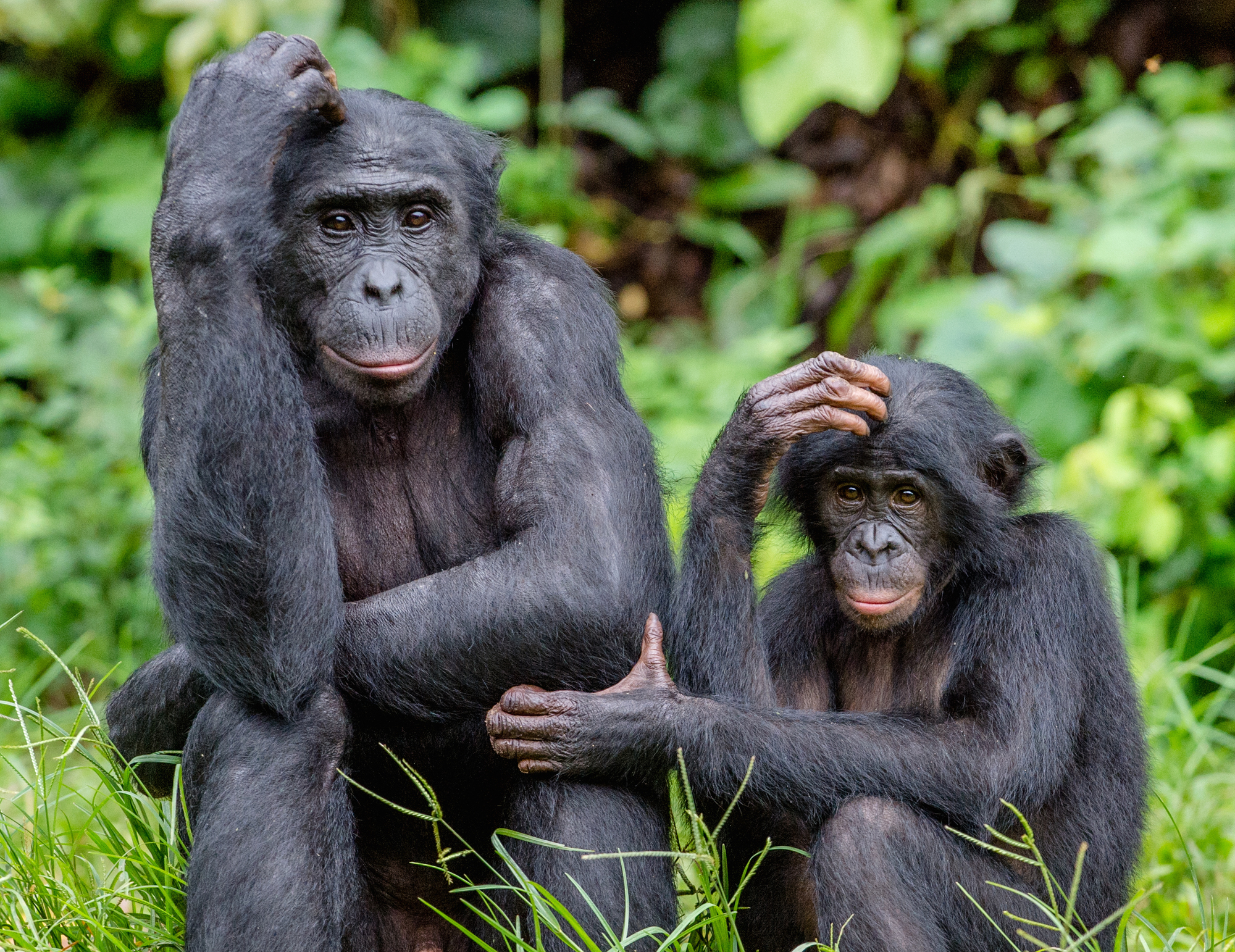About 6 million years ago in Africa there was an ape species that would change the world. We don't know much about that animal — we assume it was similar to the modern-day chimpanzee — but we do know that one population separated from the rest and would eventually evolve into our species, Homo sapiens. The rest of the species stayed together for another few million years.
Then, between 1 million and 2 million years ago, this group again split in two — separated by the physical barrier of the Congo River. The formerly single species would go on to evolve into chimpanzees on one side of the river, and bonobos on the other.
Six million years sounds like a long time, but in evolutionary terms it's rather short. We are still closely related to both of those cousin ape species, and slightly more closely to bonobos than to chimps. Understanding them, therefore, is hugely important to learning about our own biology and behavior, and work at the Primate Research Institute at Kyoto University has been vital.



















With your current subscription plan you can comment on stories. However, before writing your first comment, please create a display name in the Profile section of your subscriber account page.